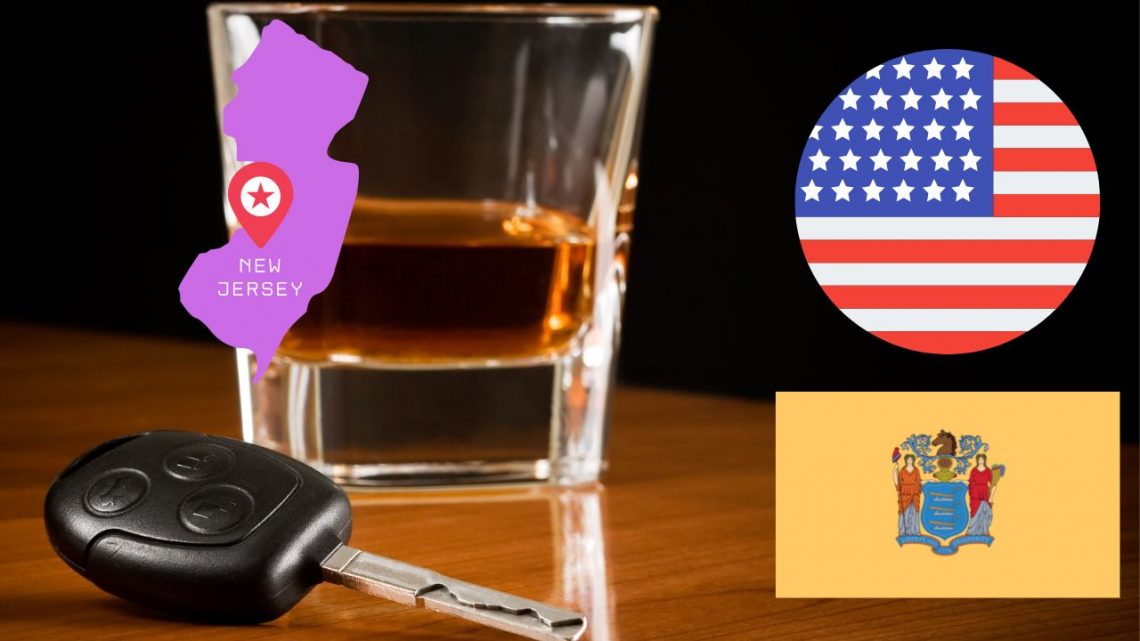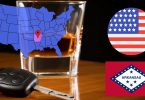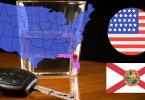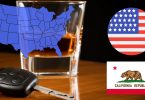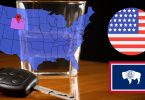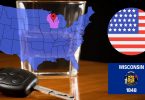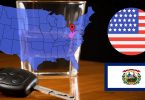In New Jersey, the maximum legal blood alcohol content (BAC) limit is capped at below 0.08% (equivalent to 80 milliliters of alcohol per 100 milliliters of blood).
What is the legal alcohol limit for driving in New Jersey?
In New Jersey, the legal alcohol limit for driving varies based on the type of driver’s license and the driver’s age. These limits are strictly enforced to enhance road safety and reduce the risk of accidents related to impaired driving. Below are the specific legal BAC limits for different categories of drivers:
- Regular Drivers: The legal BAC limit is 0.08%, which applies to the majority of drivers operating personal vehicles.
- Commercial Drivers: For those holding a commercial driver’s license (CDL), the legal BAC limit is lower, set at 0.04%, reflecting the higher responsibility associated with operating commercial vehicles.
- Minors (Under 21): New Jersey enforces a zero-tolerance policy for underage drinking and driving. It is illegal for minors to drive with any detectable amount of alcohol in their system, emphasizing the state’s commitment to preventing underage drinking and driving.
Drink and Drive Penalties and Punishments in New Jersey
Driving under the influence of alcohol or drugs in New Jersey carries severe penalties, with consequences increasing significantly for higher Blood Alcohol Concentration (BAC) levels, repeated offenses, and drug-related DUIs. These measures are designed to deter impaired driving and ensure the safety of all road users. Below is a detailed breakdown of penalties and punishments for various DUI offenses. It’s crucial for drivers to frequently check the official state’s website for the most current information, as laws and penalties may change.
For Alcohol-Related DUI with BAC of 0.10% or Greater OR Drug-Related DUI
- License Loss: 7 months – 1 year
- Fines, Fees & Surcharges: $300–$500 fine, plus additional fees and surcharges totaling over $1,700 annually for three years
- Prison Term: Up to 30 days
- Community Service, IDRC & Interlock: 12–48 hours in the Intoxicated Driver Resource Center (IDRC), with a possible requirement for an ignition interlock device
For Alcohol-Related DUI with BAC Between 0.08% and 0.10% OR Based on Observational Evidence
- License Loss: 3 months
- Fines, Fees & Surcharges: $250–$400 fine, plus additional fees and surcharges
- Prison Term: Up to 30 days
- Community Service, IDRC & Interlock: 12–48 hours IDRC
Repeated DUI Convictions
- For a 2nd Offense Within 10 Years:
- License Loss: 2 years
- Enhanced Penalties: Including higher fines and mandatory community service, plus an ignition interlock requirement
- For a 3rd Offense Within 10 Years of the 2nd:
- License Loss: 10 years
- Severe Penalties: Including a $1,000 fine, 180 days in prison, and additional penalties, with an ignition interlock requirement
Related Alcohol Offenses
- Driving or Riding with an Open Container:
- Fines: $200 for the first offense, $250 for the second, with 10 days of community service on the second offense
- Driving with a DUI Suspension:
- License Loss: Additional 1–2 years
- Fines and Surcharges: $500 fine, plus a surcharge
- Prison Term: 10–90 days
These penalties reflect New Jersey’s commitment to reducing drunk driving and its consequences. Remember, the information provided here can change, so it’s essential to stay updated by consulting the official state website regularly for the latest DUI laws and penalties.
How Can I Calculate if My Alcohol Blood Limit is Legal in New Jersey?
In New Jersey, the legal blood alcohol content (BAC) limit varies depending on the driver’s category, with the general threshold set at 0.08% for regular drivers. Understanding whether your BAC is within legal limits is crucial to ensure you’re driving safely and legally. The police in New Jersey typically identify a driver’s BAC level through breathalyzer tests conducted during traffic stops or sobriety checkpoints. These devices are designed to measure the alcohol concentration in your breath, giving an immediate indication of your blood alcohol level.
As an experienced phlebotomist with over a decade in the field, I recommend the following two methods for checking your BAC level to avoid the risks associated with impaired driving:
- Use a High-Quality Alcohol Breathalyzer: For those seeking a reliable way to measure their BAC, the BACtrack S80 comes highly recommended. It’s recognized for its professional-grade accuracy and is both DOT & NHTSA approved and FDA 510(k) cleared. This device is an excellent investment for anyone looking to ensure they are under the legal BAC limit before driving. Keeping a BACtrack S80 in your car can be a practical measure, especially since it’s easy to misjudge your own BAC level. Its accuracy and reliability make it a valuable tool for responsible driving.
- Utilize a BAC Calculator Online: Together with fellow phlebologists and web developers, I have developed an online BAC calculator. This tool is designed to estimate your BAC level based on the alcohol you’ve consumed, your weight, and other factors. While it cannot provide results with 100% accuracy, it can offer a helpful approximation of your BAC, potentially deterring you from driving if you’re close to or above the legal limit.
It’s important to remember that both methods, while useful, cannot guarantee exact accuracy due to the variability in how individuals metabolize alcohol. Factors such as your metabolic rate, recent meals, and the type of alcohol consumed can all influence your actual BAC. Therefore, if there’s any doubt about your sobriety, the safest choice is not to drive.
These tools are meant to serve as a guide to help you make informed decisions about driving after consuming alcohol. However, the best policy is always to avoid driving if you’ve been drinking, regardless of your perceived BAC level.
Ways to Avoid Driving with a High BAC in New Jersey
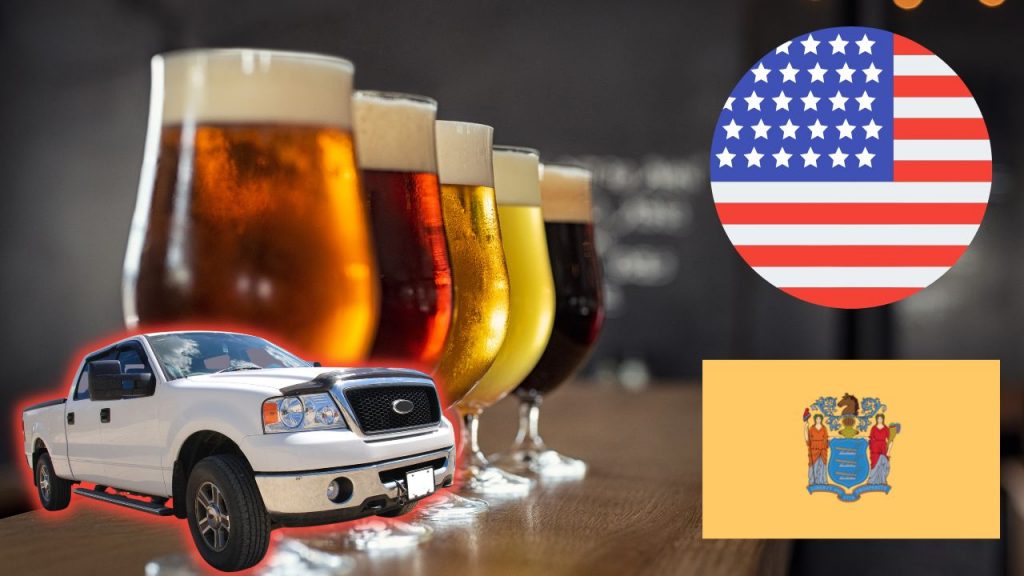
Driving with a high Blood Alcohol Concentration (BAC) is not only illegal but also poses significant risks to yourself and others on the road. Fortunately, there are several convenient alternatives to driving under the influence in New Jersey, ensuring that you can enjoy your time out without compromising on safety. Here are some practical recommendations:
- Utilize Ridesharing and Taxi Apps: Modern technology offers a simple solution to avoid driving with a high BAC. Ridesharing apps like Uber and Lyft are widely available across New Jersey and provide a convenient, reliable way to get home safely. These apps allow you to book a ride with just a few taps on your smartphone, ensuring you can leave your car parked if you plan to drink. Additionally, local taxi companies offer a traditional alternative. For example, in Newark, you can opt for services like Bibagui Services, and in Jersey City, Grove Street Taxi is a trusted option. These local services provide the same safety benefits as ridesharing apps and support local businesses.
- Order a Designated Driver Service: If you’ve driven to a location and decide to drink more than planned, leaving your car behind might not seem like an appealing option. However, designated driver services are a fantastic solution to this dilemma. These services allow you to get both yourself and your car back home safely. In Newark, Newark Airport Car & Limo Services offers such services, and in Jersey City, you can turn to Rogjah Luxury Services LLC for a designated driver. Simply searching “designated driver service” along with your city name on Google can provide you with a list of available options in your area.
These alternatives not only help in avoiding the legal consequences of driving with a high BAC but also significantly reduce the risk of accidents. By planning ahead and choosing a responsible mode of transportation, you can ensure a safe end to any outing. Remember, the cost of a taxi or a designated driver service is minor compared to the potential costs associated with a DUI offense or, worse, causing harm to yourself or others. Always choose safety over convenience when it comes to drinking and driving.
Sticking to DWI Laws in New Jersey: Sad Statistics
In 2020, New Jersey saw 584 traffic deaths, with 26% involving drivers exceeding the 0.08% BAC limit. DUI is a serious crime here, and the state enforces strict laws to combat impaired driving.
To stay within the legal BAC limit, use an alcohol breathalyzer before driving. Opt for alternatives like cabs, Uber, or designated drivers instead of driving after drinking.
For current DWI rules, visit New Jersey’s Motor Vehicle Commission’s official website. Debunk myths about alcohol and driving, and remember that even a few drinks can impair you. If you’re tipsy, choose public transportation.
Prioritize safety; keep your BAC below the limit with a reliable alcohol breathalyzer, and always stay updated on New Jersey’s DUI laws through the official website.

